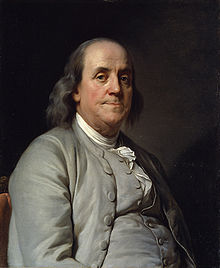Do Me A Favor So You’ll Like Me: The Reverse Psychology of Likeability
Source: forbes.com
 Catch the twist in the title?
Catch the twist in the title?If you do a person a favor, you would expect that person to like you more. However, the research shows something different. If you do someone a favor, you tend to like that person more as a result. The reason is that we justify our actions to ourselves by assuming that we did the person a favor because we like them.
This phenomenon is dubbed the Ben Franklin effect, who quipped:
He that has once done you a kindness will be more ready to do you another than he whom you yourself have obliged.
According to legend, Franklin used this discovery to curry the favor of a rival Pennsylvania legislator by asking the legislator to lend him a rare book and then thanking him profusely. It worked. In Franklin’s words:
When we next met in the House, he spoke to me (which he had never done before), and with great civility; and he ever after manifested a readiness to serve me on all occasions, so that we became great friends, and our friendship continued to his death.
Lest you think that there is no science behind this, Jecker and Landy verified the phenomenon in a study that challenged participants to an intellectual contest. The winners were subsequently either:
1. Asked to return their prize money by the researcher because he had been using his own money and was running short
2. Asked by a secretary to return their prize money because it was from the department and budget was running low
3. Allowed to keep their prize money (i.e. not approached).
Everyone was then surveyed to see how they liked the researcher. Consistent with the Franklin effect, group 1 rated him higher than group 3 showing that a personal request for a favor increases likeability. In addition, group 2 rated the researcher lower than group 3 suggesting that an impersonal request decreases likeability.
Even though I didn’t find any supporting experiments, I suspect that the reverse is also true. If we hurt someone, we’re likely to like them less and want to hurt them more. This would explain long-standing grudges like Hatfield vs. McCoy and even wartime atrocities. Once we start, we may not be able to stop and engage in behavior we would normally never allow.
This may all be counter-intuitive, but Franklin’s insight is worth a mint: get someone to do you a favor and they will like you more.
Article from: forbes.com
Image: Wikipedia






















